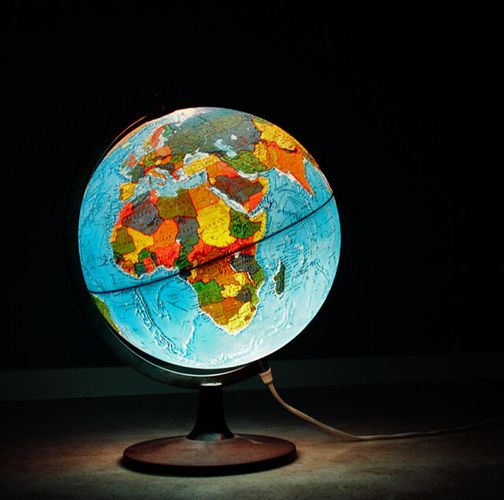In a thought provoking blog, Ulf Engel suggests that contrary to past centuries, the African continent nowadays proactively generates globalization projects, based on clearly noticeable own visions of world order. He tries to make the African role in the global world order visible by highlighting “the negotiation of external and African globalization projects” in five fields of current global concern (multilateralism, currency, trade, security and migration).
In three regards, we want to question the external-African dichotomy. First in the globalization projects under the global condition, second in the historical framing of globalization processes on the African continent, and third in the use of “Africa” as a given unit.
The proactive African role, which Engel claims to discern in the present and denies for the past, is not new per se. What may be new, is that nowadays the African agency and perhaps influence are to some extent noticed. Nonetheless, African participation and contributions to the non-aligned movement, nationalization processes inspired by the Chinese cultural revolution, the active role in alleged Cold War proxy wars, pan-African and pan-Islamic initiatives, protectionist economic policies… were clearly noticeable globalization projects during the second half of the twentieth century as well. The fact that in the long run many of these projects have proven unsuccessful, does not disqualify them as genuine visions on African roles in a global world order.
Paradoxically, aside from transformation of and initiatives by the African Union, the current “clearly noticeable own visions” emanating from the African continent do not transpire from the text. Currency competition, trade Balkanization, or the control of migration and refugees, while surely examples of global entanglements, are ultimately more revealing for European concerns and visions than for African ones. Even the field of peace and security partnerships or the response to a crisis of multilateralism, if anything, shows that African actors are participating in globalization projects, together with external actors who initiated them, rather than negotiating “external and African globalization projects”. Under the global condition, it is not always useful to juxtapose external with African, given that one could conceive of globalization projects as transregional from the onset.
Our reading of the text gives the impression of a continent on the receiving end of globalization processes and projects. This is in line with Engel’s depiction of the previous centuries. However, for those previous centuries, we suggest to complicate how to make sense of globalization. This allows us to identify numerous instances where African actors did play proactive roles and initiated increased interaction, entanglement or connectedness. If globalization is limited to something coming from the outside – in particular from Europe – brought to the African continent by missionaries, companies, conquerors or orders of knowledge, then Africa’s role is doomed to be passive. In reality, connectedness and interaction within the confines of an African continent not yet invented, had been going on for centuries and continued after the incursion of European “globalizers”. Moreover, an Indian Ocean world had integrated lands around the water, was connected with other world-economies, and was shaped by actors on all shores, islands and hinterlands, including on the African continent. Islam spread across deserts and oceans, deep into the African continent, carrying visions, norms and rules on how the world could or should look like. And also after the intrusion of a European-led globalization process, Africans actively shaped a Black Atlantic – from both side of the ocean – which developed into a political movement with significant impact by the time of decolonization in the mid-twentieth century. Last but not least, decolonization itself was – and is – a globalization project in its own right, a vision of reordering the world. Summing up, the “external” relations can just as well be somewhere else on the African continent as they can relate to Africans across the Atlantic or contacts in Europe, in the Indian Ocean world and beyond.
The problem with the African-external juxtaposition is not only the dichotomy as such, but on a more fundamental level also the use of “Africa” as a given unit with an implied degree of homogeneity. Of course, “Africa” as an idea is itself the consequence of (earlier) globalization processes from Europe, given further meaning in the context of processes of anti-slavery and emancipation in the Americas, and anti-colonialism and decolonization in Africa itself. Given this complex conceptual history of the idea of Africa, externally initiated, appropriated on both sides of the Atlantic and reinvested with meaning in postcolonial institutions like the Organization of African Unity/African Union, it is not at all clear what “Africa” signifies. There are neither clear African attributes (except for stereotypes), nor is there a clear spatial reference, as the idea of “Africa” is not limited to the African continent while at the same time often reduced to the part south of the Sahara. The fact that “Africa” is symbolically charged and at the same time an empty signifier explains the difficulty to give agency to Africa. Thus the agency that Engel claims, but fails to show for Africa, can only work for entities like the African Union, where it makes perfect sense to develop the argument Engel has made. For all other actors it is worthwhile to be more accurate in identifying them, rather than boxing them in an external-African dichotomy.
